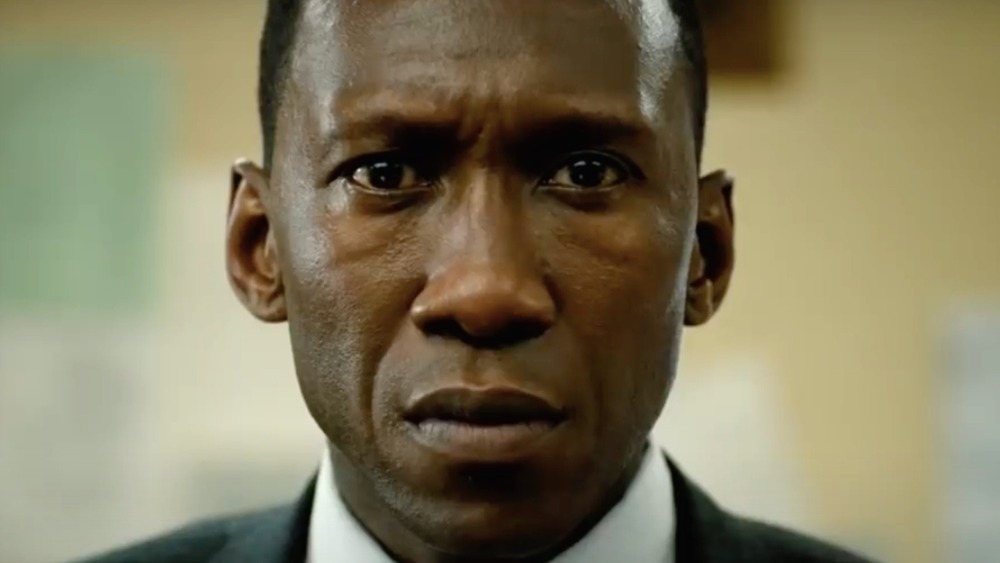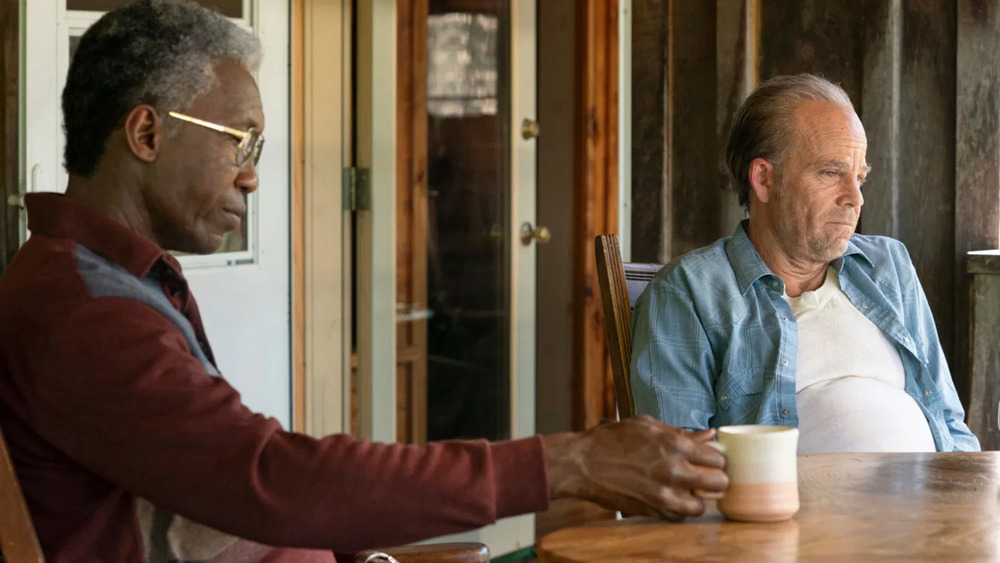The Ending Of True Detective Season 3 Explained
As far as police shows go, HBO's True Detective is definitely on the more thoughtful end of the spectrum. While each of the show's first three seasons has focused on a murder mystery, the identity of the culprit is often one of the big questions that the detectives of each season will try to answer. However, more often than not, they're just as concerned with life's biggest questions like the meaning of existence, and how time passes. Each season is less "whodunit" or even "whydunit" and more "why are we even here?"
True Detective premiered in 2014, and starred Matthew McConaughey and Woody Harrelson as detectives Rust Cohle and Marty Hart. Their respective performances made it one of TV's biggest hits that year, and per Deadline, that season had the most viewers for an HBO show's debut season since Six Feet Under in 2001. But in 2016, the second season and its complicated story about government corruption and organized crime didn't quite connect with viewers like the first season did. Luckily for HBO, True Detective's third season, which premiered in 2019, was a return to form.
Season 3 starred Mahershala Ali and Stephen Dorff as Wayne Hays and Roland West, two Arkansas detectives investigating the murder of local boy Will Purcell and the related disappearance of his sister, Julie. It took place over three time periods: 1980, when the case began; 1990, when the case was reopened; and 2015, when an elderly Wayne and Roland were still looking for closure.
While the season 3 finale did answer some of the season's biggest questions, it also left plenty more unanswered.
Breaking down the ending of True Detective's third season
True Detective's season 3 finale did partially answer the question of what happened to the Purcell children. It all circled back to a wealthy local woman named Isabel Hoyt, who lost her husband and daughter in a car crash in 1977. In 1980, while working through her own grief, Isabel developed an unhealthy attachment to Julie Purcell and kidnapped her, drugged her, and kept her hidden in a basement until 1990 when Julie escaped. As for Will, he died accidentally while trying to protect his sister.
While the series conclusion provided some clarity, it didn't exactly explain what happened to Julie after 1990. At the end of the finale, Wayne tracked down Julie to her doorstep only to forget why he was there. And because of his failing memory, Wayne never fully solved the mystery.
Show creator Nic Pizzolatto has said that one of the main themes of season 3 is memory and its deterioration, as memories can be crucial to a homicide investigation. For example, securing a conviction often depends on the testimony of an eyewitness, which is based on their memory. Memory is also important to detectives themselves, as they are often sifting through mass amounts of information and cracking cases that involve finding hidden connections, which essentially forces them to rely on their memory to keep all of the details straight.
For Wayne, his biggest obstacle to learning the fate of the Purcell children isn't a sadistic criminal or a corrupt system, it's his own memory. And as his memories begin to fade, the battle becomes almost impossible to win.
But the ending of True Detective's third season does have one sliver of optimism — Wayne might not remember his cases, but he still remembers his heroic service in the Vietnam War, and the day he proposed to his wife, Amelia. As fans of the series know, that's basically as close to a happy ending as the show can get.
True Detective is available to stream now on HBO Max.

